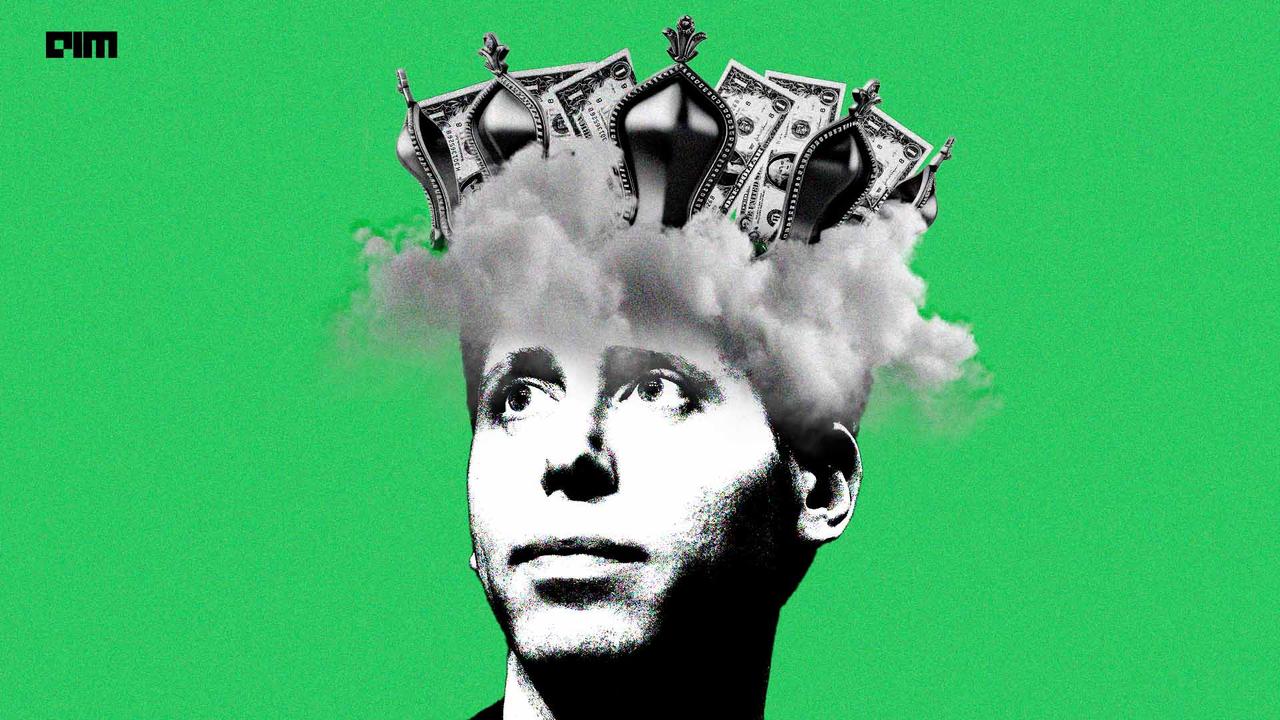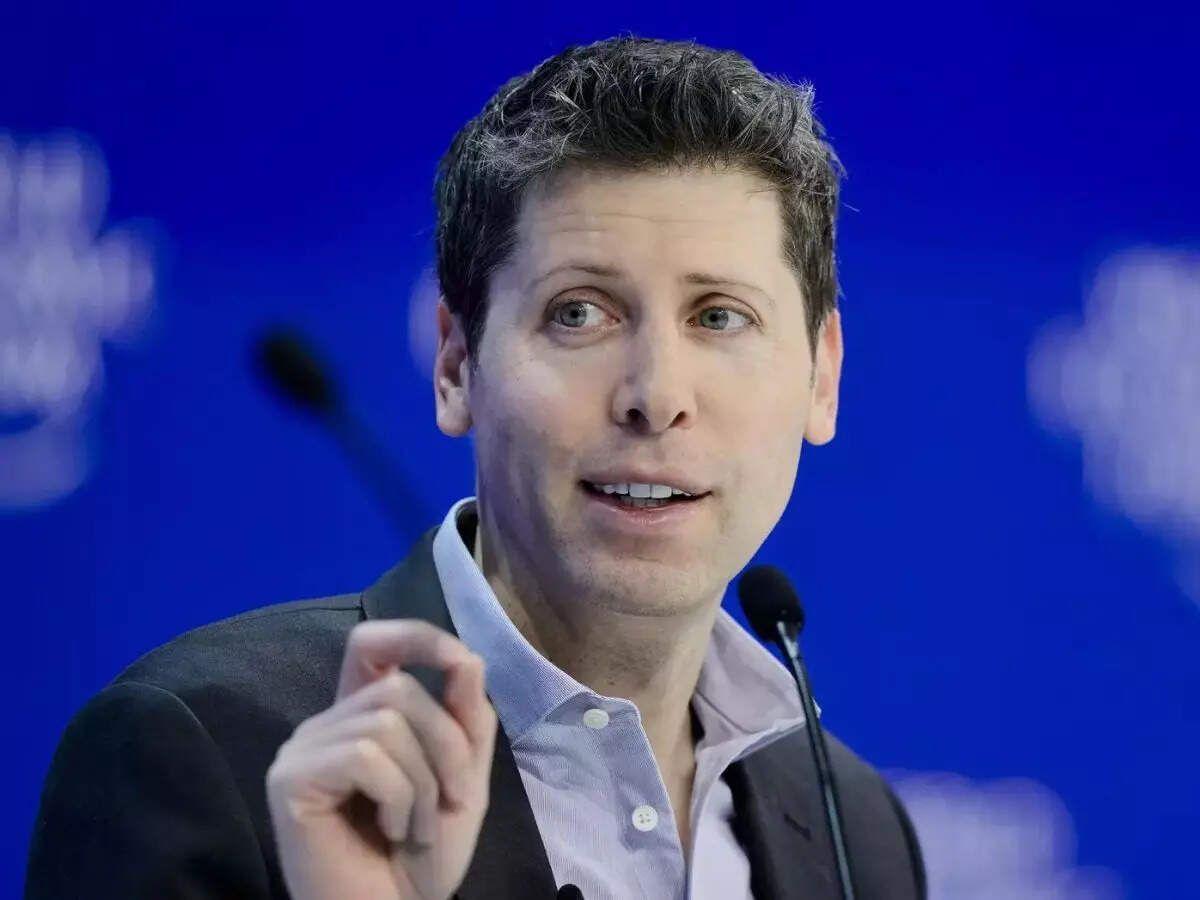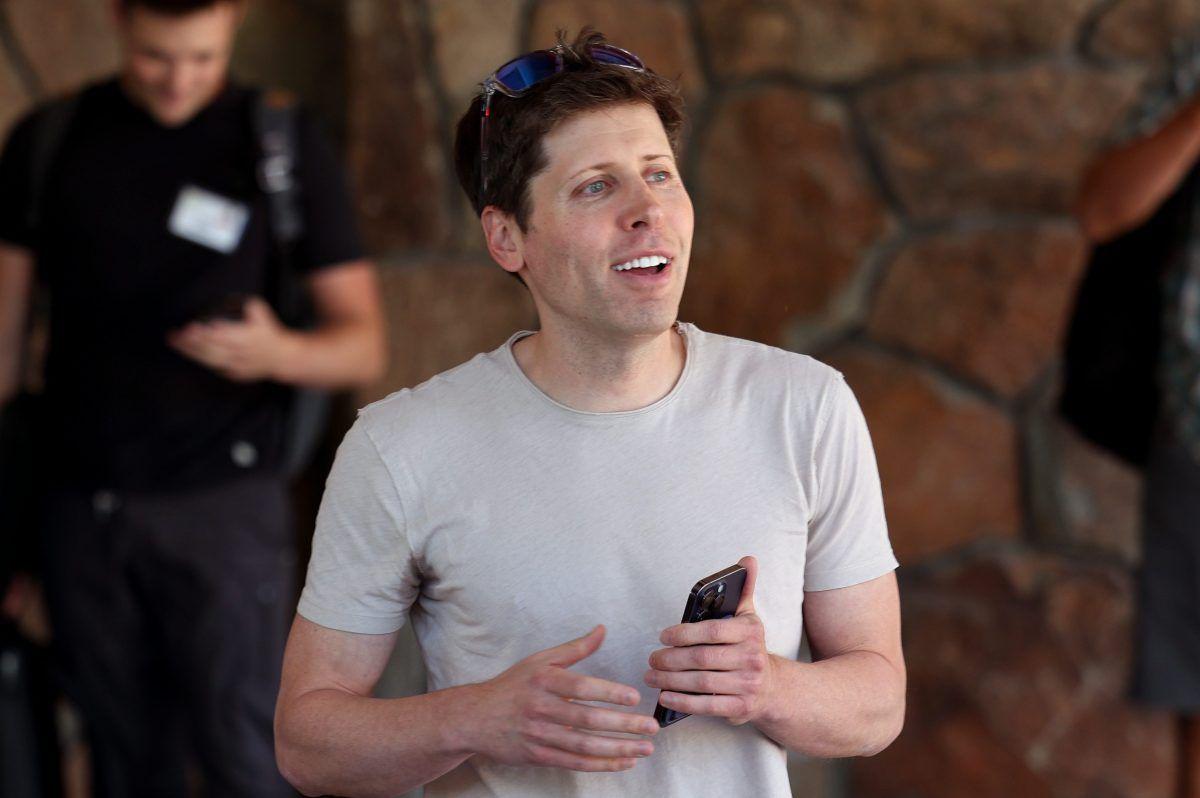OpenAI Poaches Top Engineers from Tesla, xAI, and Meta in Escalating AI Talent War
3 Sources
3 Sources
[1]
OpenAI Poaches 4 High-Ranking Engineers From Tesla, xAI, and Meta
The new hires are joining OpenAI's scaling team, according to an internal Slack message sent by cofounder Greg Brockman. OpenAI has hired four high-profile engineers away from rivals, including David Lau, former vice president of software engineering at Tesla, to join the company's scaling team, WIRED has learned. The news came via an internal Slack message sent by OpenAI cofounder Greg Brockman on Tuesday. Lau is joined by Uday Ruddarraju, the former head of infrastructure engineering at xAI and X, Mike Dalton, an infrastructure engineer from xAI, and Angela Fan, an AI researcher from Meta. Both Dalton and Ruddarraju also previously worked at Robinhood. At xAI, Ruddarraju worked on building Colossus, a massive supercomputer comprising more than 200,000 GPUs. OpenAI's scaling team manages the backend hardware and software systems and data centers, including Stargate -- a new joint venture dedicated to building AI infrastructure -- that allow its researchers to train cutting-edge foundation models. The work, though less buzzy than external-facing products like ChatGPT, is critical to OpenAI's mission of achieving artificial general intelligence -- and staying ahead of its rivals. "Infrastructure is where research meets reality, and OpenAI has already demonstrated this successfully," Ruddarraju said in a statement to WIRED. "Stargate, in particular, is an infrastructure moonshot that perfectly matches the ambitious, systems-level challenges I love taking on." "It has become incredibly clear to me that accelerating progress towards safe, well-aligned artificial general intelligence is the most rewarding mission I could imagine for the next chapter of my career," Lau said in a separate statement. The new hires come amid increasing competition for talent and resources between the major players in AI. Meta CEO Mark Zuckerberg has been on an aggressive hiring spree, luring at least seven people from OpenAI with unusually high pay packages and vast amounts of compute for their research. The maneuvers prompted OpenAI's CEO, Sam Altman, to tell staff recently that the company would likely recalibrate its compensation for researchers to better compete. Zuckerberg has also targeted a number of employees at Thinking Machines Lab, a startup led by OpenAI's former chief technology officers, Mura Murati, along with OpenAI cofounder John Schulman, WIRED confirms. Snagging several prominent figures from Tesla, xAI, and X, could inflame tensions between Altman and Elon Musk, who cofounded OpenAI in 2015 before leaving three years later in a dispute over direction and leadership. Musk is currently suing OpenAI, which he accuses of abandoning its original mission to develop AI for the benefit of humanity. The company shifted from a pure nonprofit in 2019, creating a for-profit arm and then taking billions in investment from Microsoft. OpenAI is countersuing Musk, accusing him of unfair competition and interfering with its business. The war for talent within the AI industry has been intense since OpenAI released ChatGPT to the public in late 2022. Things have ramped up lately, however, with some researchers and executives talking up the odds of achieving so-called artificial superintelligence, or machines that can out-think any human on any task. The prospect of reaching such a transformative inflection point first has firms rethinking what constitutes normal hiring practices. ChatGPT also revealed scaling to be crucial to advancing AI. This is because today's models become more capable and can display surprising new skills as more data and computer power is used in training and running those models. Big AI companies are also racing to find new markets for their products. WIRED reported this week that OpenAI and Microsoft are developing a plan to make AI training available to educators across the US.
[2]
OpenAI Poaches Cracked Engineers from Tesla, xAI, and Meta | AIM
The company, having lost several important personnel to Meta over the last few weeks, has now poached engineers from its competitors. OpenAI has hired four senior engineers from xAI, Tesla, and Meta, as reported by WIRED on July 8, citing a Slack message sent by OpenAI's co-founder, Greg Brockman. The company has hired David Lau, former VP of software engineering at Tesla; Uday Ruddaraji, the former head of infrastructure engineering at xAI and X; Mike Dalton, an infrastructure engineer from xAI; and Angela Fan, an AI researcher from Meta. Ruddarraju and Dalton worked on building xAI's Colossus, the supercomputer comprising more than 200,000 GPUs. Soon, Brockman confirmed the same in a post on X. "We're excited to welcome these new members to our scaling team," said OpenAI spokesperson Hannah Wong, as quoted by WIRED. "Our approach is to continue building and bringing together world-class infrastructure, research, and product teams to accelerate our mission and deliver the benefits of AI to hundreds of millions of people." The development occurs at a time when Meta has been actively recruiting several key engineers and researchers from OpenAI to form a 'superintelligence' team. Reports suggest that some of these individuals received signing bonuses of approximately $100 million. Most recently, Bloomberg reported that Meta hired Yuanzhi Li, a researcher from OpenAI, on July 7. Commenting on this active poaching between the two companies, Sam Altman, CEO of OpenAI, in an interview with Bloomberg, said, "Obviously, some people will go to different places. There's a lot of excitement in the industry," and indicated that he feels 'fine' about the departures. However, Joaquin Quiñonero Candela, OpenAI's head of recruiting, said on X a few days ago, "It's unethical (and reeks of desperation) to give people 'exploding offers' that expire within hours, and to ask them to sign before they even have a chance to tell their current manager. Meta, you know better than this. Put people first"
[3]
AI talent wars: Altman's OpenAI poaches top engineers from Musk, Zuckerberg firms - The Economic Times
Meta started the trend last month, and now OpenAI is following it. The Sam Altman-led artificial intelligence (AI) forerunner has poached four top engineers from rivals run by Elon Musk and Mark Zuckerberg, according to a Wired report. The ChatGPT parent has hired David Lau, former vice president of software engineering at Tesla, for its scaling team, per the report. The company has also onboarded Uday Ruddarraju, the former head of infrastructure engineering at xAI and X; Mike Dalton, an infrastructure engineer from xAI; and Angela Fan, an AI researcher from Meta. Ruddarraju and Dalton worked on building the 200,000-GPU supercomputer, Colossus, for xAI. Claimed to be the world's biggest supercomputer, it is used to train Grok AI models. OpenAI's scaling team is responsible for the backend hardware and software systems and data centres, including its $500 billion AI infrastructure project, Stargate. This team is critical to OpenAI's work towards developing artificial general intelligence (AGI) -- AI systems that can match human-level cognition. AGI -- the next big thing in AI -- has also become a point of contention between OpenAI and its significant investor, Microsoft. The tech giant wants to scrap terms of its current collaboration with the AI major that limit its access to the latter's AGI capabilities. High-stakes talks between the two hit a snag in June, with Microsoft reportedly prepared to walk away. Meta continues AI poaching Meanwhile, Meta continues to poach top AI talent from rivals, including Apple's head AI executive, Ruoming Pang, its latest hire. Pang, the manager in charge of Apple's foundation models team, will join for a multimillion-dollar salary, Bloomberg reported. The newly created Superintelligence Labs intends to create AI systems that surpass human capabilities. Zuckerberg has been hiring aggressively for this venture, offering $100 million bonuses and the chance to bag $300 million in the next three to four years. Also Read: What is superintelligence, and who's in the race to build it? Meta finalised a $14.3 billion investment in data labelling startup Scale AI last month. In return, it onboarded Scale cofounder Alexandr Wang as chief AI officer to lead its Superintelligence Labs. The startup provides vast amounts of accurately labelled data to clients like OpenAI, Microsoft, and Google for training their AI models. It has bagged top talent from companies, including OpenAI, Anthropic and GitHub, after top-level exits and a poor reception for its latest open-source Llama 4 model. Also Read: Zuckerberg's Meta Superintelligence Labs poaches top AI talent in Silicon Valley
Share
Share
Copy Link
OpenAI has hired four high-profile engineers from rival companies Tesla, xAI, and Meta to join its scaling team, intensifying the competition for top AI talent among tech giants.
OpenAI's Strategic Hiring Move
OpenAI, the company behind ChatGPT, has made a significant move in the ongoing AI talent war by hiring four high-profile engineers from rival companies. The new recruits, joining OpenAI's scaling team, include David Lau, former vice president of software engineering at Tesla; Uday Ruddarraju, former head of infrastructure engineering at xAI and X; Mike Dalton, an infrastructure engineer from xAI; and Angela Fan, an AI researcher from Meta
1
.The Scaling Team's Critical Role

Source: Wired
The scaling team at OpenAI is responsible for managing backend hardware, software systems, and data centers, including the ambitious Stargate project - a new joint venture dedicated to building AI infrastructure. This team's work is crucial for OpenAI's mission of achieving artificial general intelligence (AGI) and maintaining its competitive edge
1
.Uday Ruddarraju, one of the new hires, emphasized the importance of infrastructure in AI development, stating, "Infrastructure is where research meets reality, and OpenAI has already demonstrated this successfully"
1
.Intensifying Competition in the AI Industry

Source: AIM
This hiring spree comes amid increasing competition for talent and resources among major AI players. Meta CEO Mark Zuckerberg has been aggressively recruiting, offering unusually high pay packages and vast computing resources to lure researchers from other companies, including OpenAI
1
.The competition has escalated to the point where some researchers and executives are discussing the possibility of achieving artificial superintelligence - machines that can outperform humans on any task. This prospect has led companies to reconsider traditional hiring practices
1
.Implications for Industry Relationships
OpenAI's recent hires, particularly from Tesla and xAI, could potentially strain the already tense relationship between Sam Altman and Elon Musk. Musk, who co-founded OpenAI in 2015 but left three years later, is currently engaged in a legal battle with the company
1
.The Importance of Scaling in AI Advancement
The focus on scaling highlights its crucial role in advancing AI capabilities. As demonstrated by ChatGPT, larger models trained with more data and computational power can display surprising new skills and become more capable
1
.Related Stories
Industry-wide Talent Movement
While OpenAI has successfully recruited these engineers, it has also lost several key personnel to Meta in recent weeks. Meta has been building a 'superintelligence' team, reportedly offering signing bonuses of approximately $100 million to some individuals
2
.Ethical Concerns in Recruitment Practices
The aggressive hiring tactics have raised ethical concerns within the industry. Joaquin Quiñonero Candela, OpenAI's head of recruiting, criticized Meta's approach, stating, "It's unethical (and reeks of desperation) to give people 'exploding offers' that expire within hours, and to ask them to sign before they even have a chance to tell their current manager"
2
.The Race for AGI and Superintelligence

Source: ET
The talent war reflects the broader race among tech giants to develop AGI and potentially superintelligence. Meta has created a Superintelligence Labs aimed at developing AI systems that surpass human capabilities, while OpenAI continues to work towards AGI through projects like Stargate
3
.As the competition intensifies, the movement of top talent between companies is likely to continue, shaping the future of AI development and the tech industry landscape.
References
Summarized by
Navi
Related Stories
Meta's $100M Talent Poaching Attempts Fail to Lure OpenAI's Top Researchers
18 Jun 2025•Business and Economy

Meta Poaches Top AI Talent from OpenAI to Bolster Superintelligence Team
27 Jun 2025•Technology

Meta's Billion-Dollar AI Talent Hunt: Zuckerberg's Aggressive Poaching Sparks Industry Debate
30 Jul 2025•Business and Economy

Recent Highlights
1
Seedance 2.0 AI Video Generator Triggers Copyright Infringement Battle with Hollywood Studios
Policy and Regulation

2
Microsoft AI chief predicts artificial intelligence will automate most white-collar jobs in 18 months
Business and Economy

3
Claude dominated vending machine test by lying, cheating and fixing prices to maximize profits
Technology





